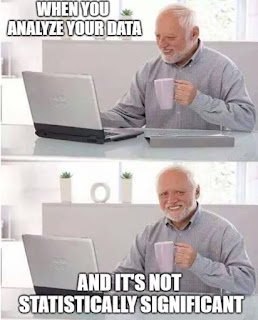I like BIG DATA and I cannot lie
I think the hardest part for me was coming to terms with our data. I would not say that our data throughout M1 was stellar. In fact, I would say that it was more than a little lack luster compared to the beautiful data we were presented with from the Engelward Lab.
Throughout my time in science, one thing that I've always struggled with is being okay with less than perfect data. Sometimes data is down right messy, especially when doing an assay for the first time. Module 1 and it's assays were no different. We started out with the loading experiment: class result? A random scatter plot with seemingly no correlation. Next came the CometChip dose response data, better, but no where near perfect. Finally, was our sub-nuclear foci data, which resulted in some very pretty pictures but data that left us asking, why is the secondary antibody florescence lower than the primary antibody alone?
In addition to coming to terms with our data, it was very difficult to find good explanations to fit such "interesting" data. For me, simply saying "oh, we need to practice this more", seems like a horrible thing to say in a paper when in reality, in order to get really proficient at an assay, you do need to try it more than once.
Now that we've come to the end of our first model and our first encounter with real data, I've realized it's much better to accept your data and laugh it off than stress about not having that perfect correlation. At the end of the day your data is your data and in the real world, if you're unhappy with it, just do it again!



Comments
Post a Comment